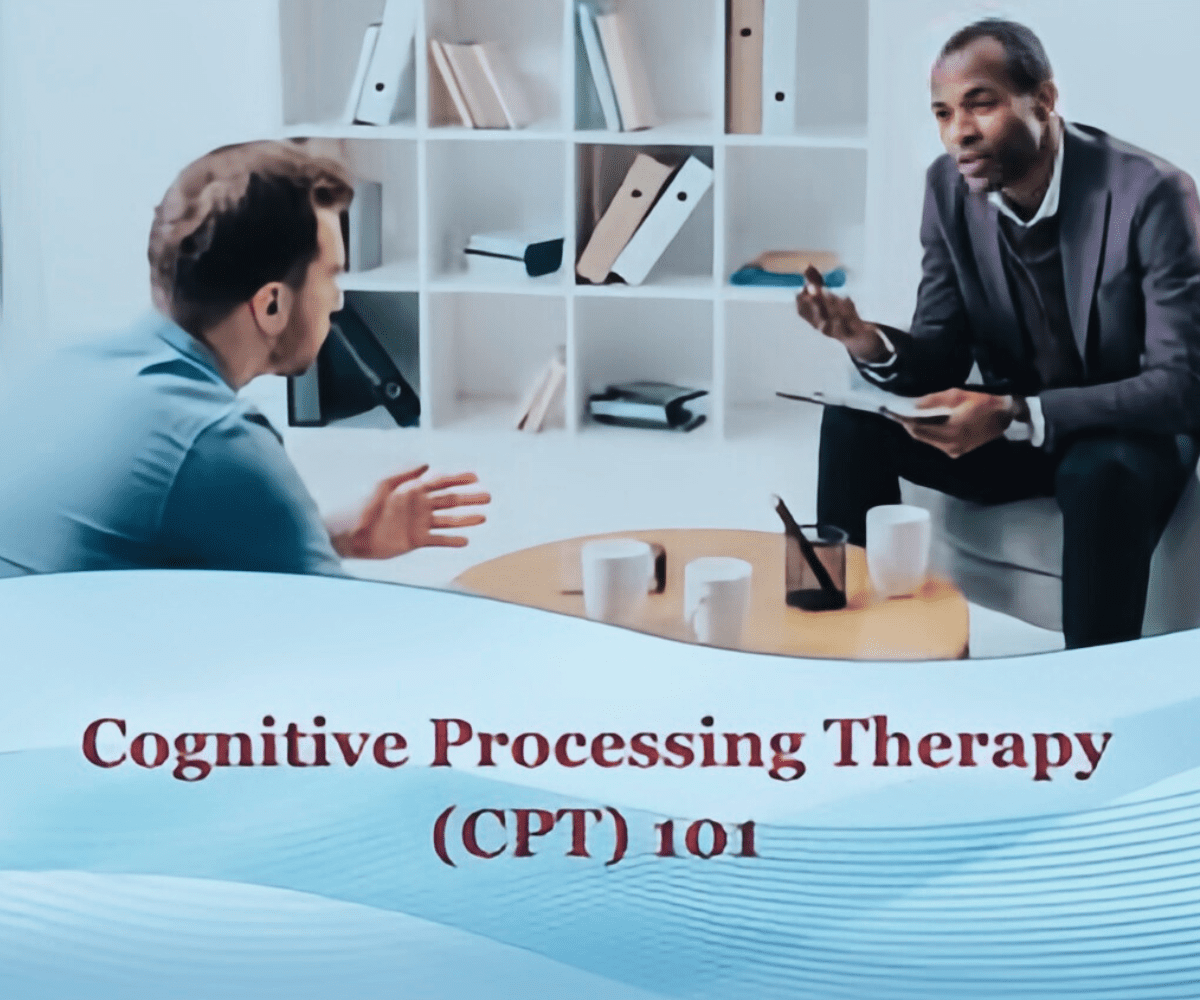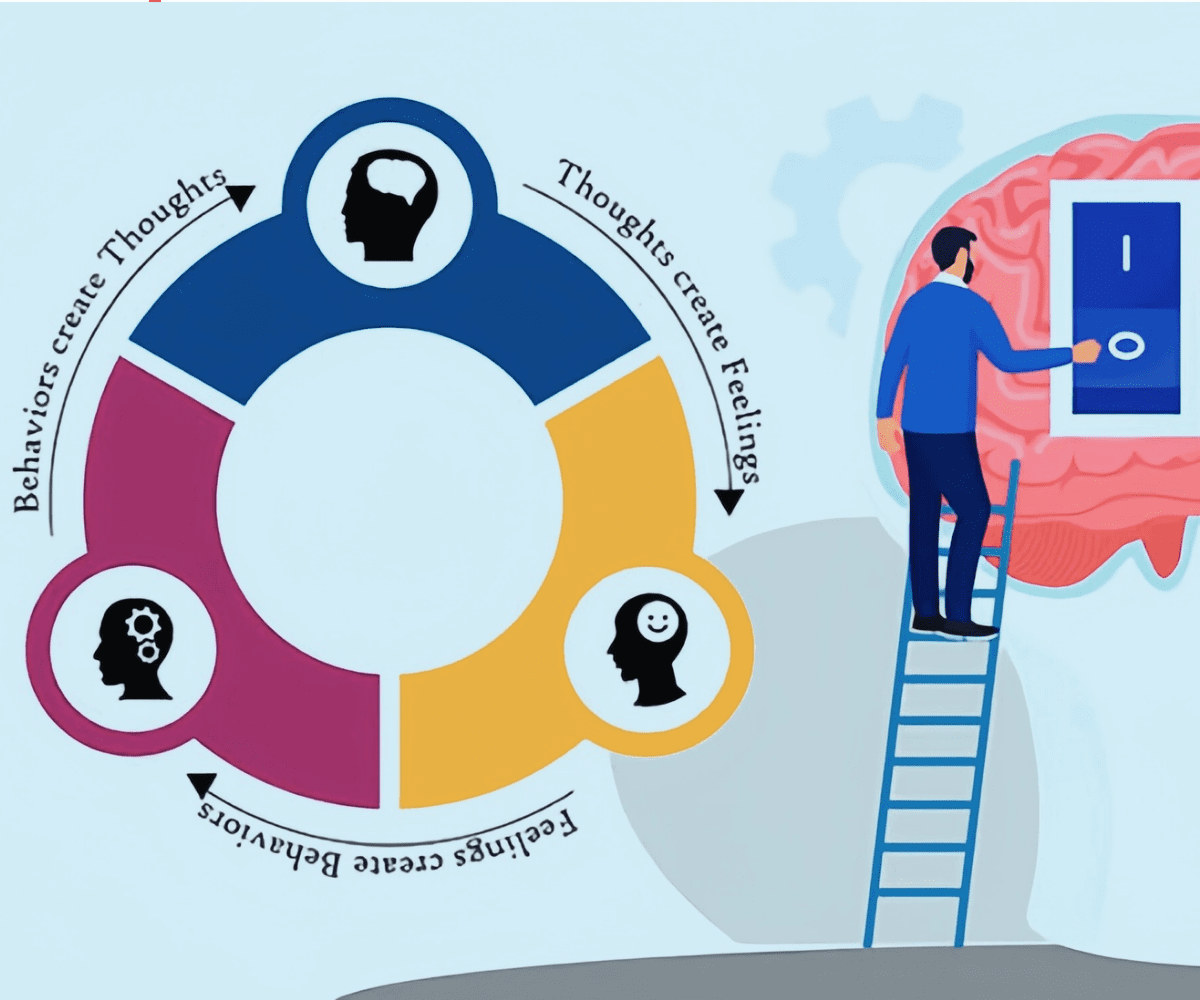Cognitive Processing Therapy Training: A Comprehensive Guide


Cognitive Processing Therapy (CPT) is a proven therapy for dealing with Posttraumatic Stress Disorder (PTSD) and similar issues. It focuses on helping people change their thoughts and beliefs that keep them feeling upset. CPT is widely used in places like Veterans Affairs (VA) centers and community mental health clinics.
This guide aims to explain CPT training in detail, including its parts and the skills needed to use it well. Whether you’re a mental health expert, a student, or just curious, this article will give you helpful information and useful tips.
What is Cognitive Processing Therapy (CPT)?
Cognitive Processing Therapy (CPT) is a proven treatment for Posttraumatic Stress Disorder (PTSD) and similar problems. It’s like a guidebook for therapy that’s been tested and shown to work. CPT focuses on thoughts and behaviors related to trauma, helping people change harmful thoughts and beliefs they may have about their experiences.
CPT follows the idea that what we think and believe affects how we feel and act. When something traumatic happens, people might start to see themselves, others, and the world in a negative or distorted way. This can keep them feeling bad and experiencing PTSD symptoms.
The primary goals of CPT are to:
- Understand the relationships between thoughts, emotions, and behaviors.
- Identify and challenge maladaptive or distorted thoughts related to the traumatic event(s).
- Develop more balanced and adaptive beliefs about the trauma, oneself, and others.
- Reduce PTSD symptoms and improve overall functioning and quality of life.
CPT typically consists of 12 weekly sessions, each lasting 60-90 minutes. This help comes in two ways: either alone or with others, and it can change to fit different kinds of tough experiences like war, assault, bad things that happened when you were young, and big accidents. This kind of support can make their pain and PTSD symptoms keep going.
Components of Cognitive Processing Therapy Training
- Basic Ideas
- Understanding how people think and process information
- Introduction to the PTSD model
- Treatment Plan and Guide
- Detailed training on the CPT treatment plan
- Session-by-session guidance
- Techniques and strategies
- Using the CPT guidebook
- Understanding Cases
- Creating detailed case formulations based on the PTSD model
- Developing a deeper understanding of cases and problems
CPT Training Components


- Core Skills Training
- Building therapeutic rapport
- Facilitating emotional processing
- Implementing cognitive restructuring techniques
- Practice and Role-Play
- Role-play exercises to practice therapy techniques
- Feedback from experienced trainers
- Supervision and Consultation
- Ongoing supervision and consultation
- Addressing challenges and promoting protocol adherence
- Cultural Competency
- Understanding cultural considerations
- Adapting CPT for diverse client needs
- Self-Care and Professional Development
- Prioritizing self-care for mental health professionals
- Ongoing professional development for trauma-focused treatments
Essential Skills for Cognitive Processing Therapy
Effective delivery of CPT requires a range of skills and competencies. Here are some essential skills that mental health professionals should develop during CPT training:
- Listening and Understanding: Being good at listening, showing you understand, and making a safe and friendly place for therapy.
- Asking Questions: Using questions to help clients think about their thoughts, beliefs, and views without making them feel attacked.
- Changing Thoughts: Finding and challenging thoughts or beliefs that aren’t helpful about the traumatic event(s), and helping develop more balanced and helpful beliefs.
- Understanding the client’s situation: Being able to understand the client’s problems well and adjust the treatment based on how they think about their trauma.
- Teaching about PTSD: Being able to explain PTSD, how thinking affects it, and why CPT is helpful in a way that’s easy to understand.
- Respecting different cultures: Being aware of different cultures and adjusting CPT to fit each client while still sticking to the treatment plan.
- Taking care of yourself: Knowing it’s important to take care of yourself and keep learning to stay good at your job and avoid feeling overwhelmed when working with people who’ve been through trauma.
Conclusion
Cognitive Processing Therapy (CPT) is a really good treatment for PTSD and similar problems. Mental health pros learn all they need to know about CPT through thorough training. This helps them give the treatment well.
By grasping the basics and learning how to do CPT, mental health pros can help folks recognize and change bad thoughts connected to their tough experiences. This can make PTSD symptoms go down and make life better overall.
Keeping up with training, talking with others, and growing professionally are super important. This helps mental health pros keep doing a great job and give top-notch care to people getting CPT. With the right training and doing things the right way, mental health pros can really help folks dealing with trauma.
FAQs
1. How long does CPT training typically take?
How long it takes to learn CPT can be different depending on who’s teaching and what program you’re in. But typically, the training lasts about 2-5 days of focused learning. After that, there’s ongoing help and advice to support you as you use CPT.
2. Is CPT training only for licensed mental health professionals?
CPT training is mainly for licensed mental health pros like psychologists, counselors, and social workers, but it might also be open to other healthcare folks or trainees in mental health settings with the right supervision.
3. Can CPT be adapted for different types of trauma?
CPT can help with different kinds of trauma like from war, assault, childhood hurt, or disasters. The main ideas and methods are the same, but we change the stories and ideas to match what happened to each person.
4. Is CPT suitable for all clients with PTSD?
CPT helps with PTSD and similar problems, but it might not work for everyone. Important Considerations
Before starting CPT, it’s crucial to assess individual circumstances. If you experience:
- Difficulty thinking clearly
- Strong feelings of disconnection
- Ongoing safety concerns
We may need to:
- Adjust the treatment plan
- Explore alternative options
Careful evaluation and understanding of each person’s situation is essential to determine if CPT is the best fit.
5. How can mental health professionals stay up-to-date with CPT developments?
Mental health experts can keep learning about CPT by going to workshops, conferences, and trainings from trusted groups. They can also talk to experienced CPT providers, join peer groups, and read the newest research and articles.

